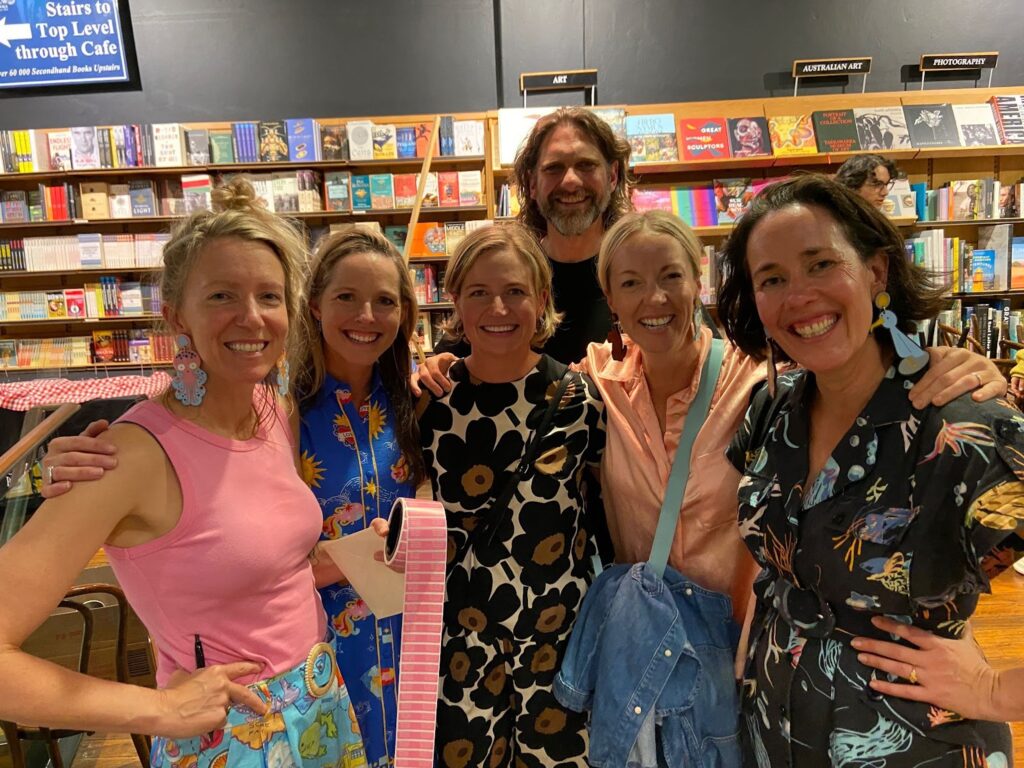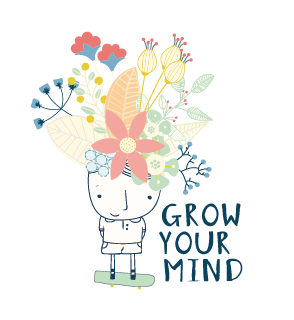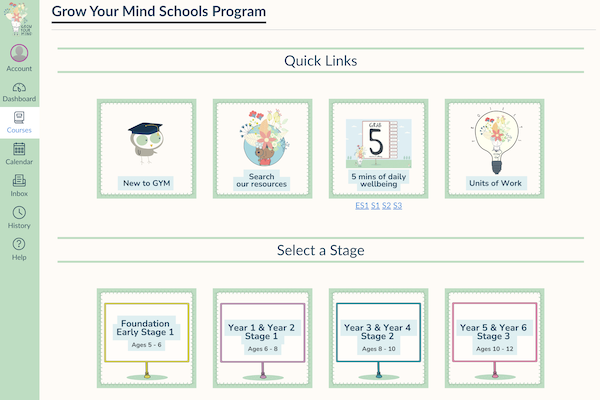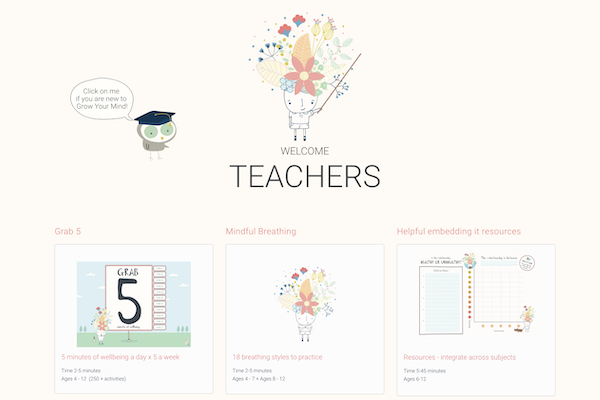Let’s say you are a hiker. You love trekking through the wilderness. You enjoy the sky, the time to think, and the fresh air. You aren’t as mad about the storm approaching, you know, the one that looks a little menacing as it appears to be engulfing all of the trees in its creeping white and grey cloud. Suddenly you are no longer in awe of the mountains and trees, because you can’t see them. You are in a blizzard. You cannot even see the track in front of you. What are you going to do to survive? Well you could trigger an emergency beacon or use a satellite phone to dial emergency services (but alas you forgot these). What is the next best thing that might prove to be helpful?

A compass. Steering you in the direction that will lead you back to a place of safety and calm. A steady, reliable guide to home.
This is why we wrote “How to be a fantastic sensational good enough kid”. We wanted it to be a guidebook for any kid, teenager and adult to turn to when they felt lost or stuck. And, we wanted the book to be a prevention tool, a resilience booster. Because, that compass is not going to help you on your low-visibility-dream-hike-turned-nightmare if you don’t know how to use it. We wanted the reader to know what skills they could start practising, we wanted them to understand the concept of respectful relationships, consent, dealing with disappointments, overcoming fear, gratitude, decision making and more before they needed to employ those tools. We wanted them to read it and return ‘home’ and in this context,
‘home’ was a place inside themselves where they knew they were enough. They remembered they were good inside, imperfect yes, but totally good enough.
But ah, we wanted kids to actually read it. And so we created interesting-sounding chapters such as:
- How to get yourself out of a trap
- How to live to 100
- How to dig yourself out of a hole
- How to be more of a legend
We hoped that the book would serve as a mirror book, where kids could see themselves in the true stories from other children that are featured at the end of each chapter. Stories such as Mùchén, who was too terrified to attend the school camp in case something happened to his mother while he was away. Or Maeve, who was sure that if she were as popular as her friend, then she would be happy. Perhaps they could relate to Curtis who argued with his mother constantly about her asking him to reduce gaming time. Others might see themselves in Violet who was caught in a comparison storm, feeling like a failure after missing out on being awarded music captain. Or maybe they had spent time in the hospital or were injured, and they could relate to Ondine who found herself wheelchair bound for 4 months after suffering a nasty leg break. Many were sure to know a kid like India who did not know how to deal with a possessive friend who took the joy out of going to school.
Ordinary magic. These children all used ordinary magic to overcome their fears, their worries, their setbacks, their big and uncomfortable emotions. And that’s what we really wanted kids to know. Resilience is not an elusive trait that some people have and some people don’t. In fact, we all have the capacity to use it. Ann Masten, an American developmental psychologist and Regents Professor in the University of Minnesota’s Institute of Child Development coined the term when it comes to understanding resilience. The idea is that resilience comes not from superhero genes but instead from everyday systems we can grow on purpose: caring relationships, self-control skills, effective schools and supportive communities.This is echoed by the incredible psychologist and co-director of the New Zealand Institute of Wellbeing & Resilience, Dr Lucy Hone, whose research informed much of our chapter named: How to be resilient when you don’t want to be. We created simple invitations to cultivate a mindset in children that builds their capacity to be resilient.
- Look for the good. Deliberately point the mental torch at what is going well.
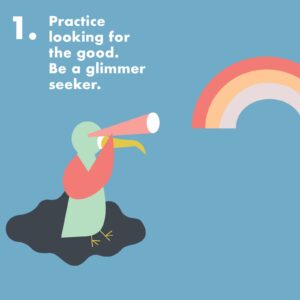
- Know that sadness, setbacks and suffering are a part of life. As Dr Lucy Hone says, life will throw you spanners, accepting that fact keeps the woe-is-me soundtrack from going full volume.

- Do the things you love. Prioritise joy, it is not a luxury, it is protective.
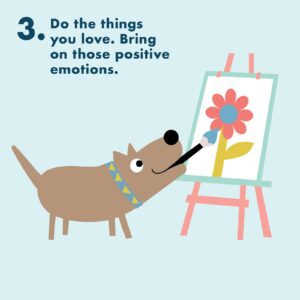
- Ask yourself “Is this thought helping or harming?” Challenge those pesky “shark thoughts” that bite and replace them with “dolphin thoughts” that propel you forward.
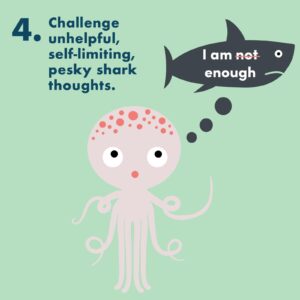
The book follows a certain pattern. Each chapter opens with a comic strip, in fact, children can ‘cheat’ and just read the comic and they will get the moral of the chapter. Well, to be fair, they may have to read a little further in chapter 7 to understand what on earth is going on there. The story conveys an octopus eating its own arm due to hunger, then eating his boyfriend due to an urge it has after mating and finally calling on a shark to eat a toxically positive sea urchin. Any ideas?! You will have to buy the book and find out.
Each chapter is then written in first person by a former primary school teacher with a passion for positive psychology, public health and creative writing. That’s me, Alice, by the way, the same person rambling on about compasses and emergency beacons. I wanted it to be in first person so that the reader felt like I was having a one on one conversation with them.
The chapters are sprinkled with pop up boxes of colourful text that help to explain terms such as philosopher, working memory, circadian rhythm etc. There is always a take it or leave it section where I offer invitations to grow a certain skill set. Perhaps that might be in delivering a good apology, or owning your jealousy, practising gratitude in a way that feels do-able and not forced, naming your emotions as a way to calm down, seeking awe and embracing curiosity.
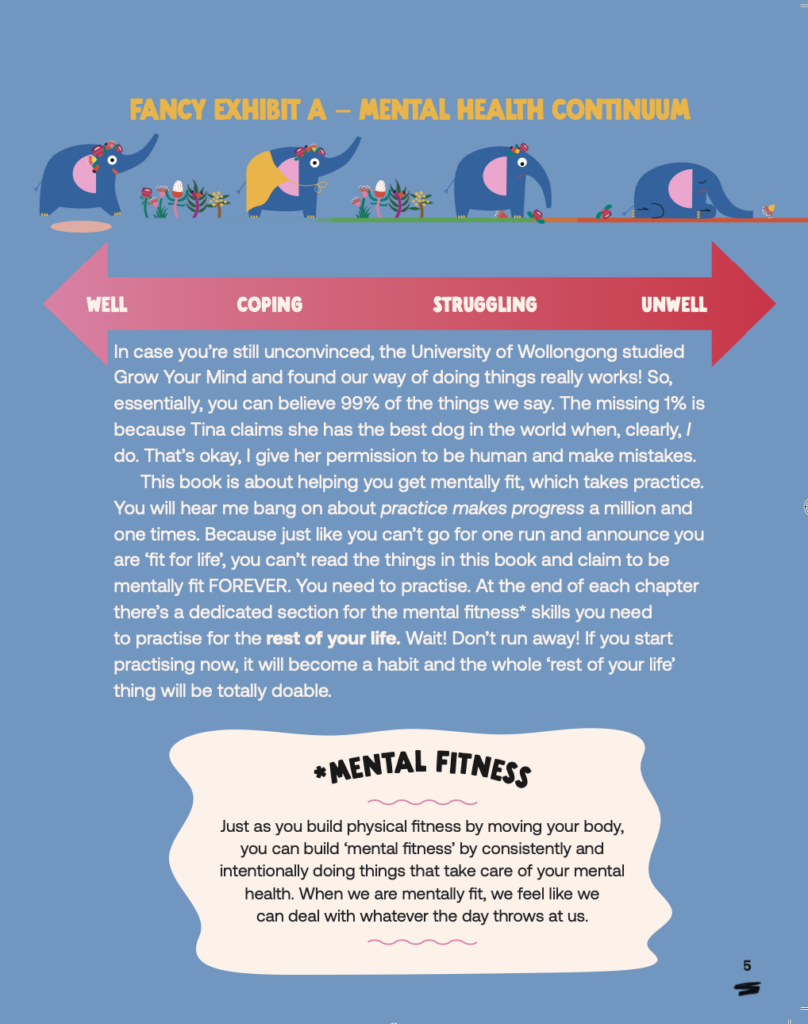
The chapters also feature a call to action to research someone famous that we have spotlighted. This person embodies the chapter and they all have an interesting story. This fits well with our online school program which has a core component of character strength education. At Grow Your Mind we call this part of the program: Guess Who. We share the story of someone remarkable and invite students to pick their strengths. In fact, much of the book is centered around the best of Grow Your Mind.

If everything blew up on our online school platform, if our children’s podcast disappeared – what would we want you to know? The following:
- Is this a threat, challenge or opportunity? There is great power in understanding the difference between something that is scary but safe and something that is scary and dangerous.
- Emotions are data, thoughts aren’t facts. You can challenge unhelpful thoughts and emotions come and go. They are just alerting you to things that are going on.
- Friendships should feel good most of the time. And if they don’t we have tips.
- Kindness is a choice, not a mood. It is always possible to choose kindness.
- You will stuff up. Don’t blame others and equally forgive yourself quickly by doing the next right thing.
- Listen to your body. And respect other people’s right to say no to things you ask of them.
- Enough already. Time to flip the narrative that being enough means winning, being popular, super sporty or ridiculously musical. All of these things are nice but have nothing to do with truly feeling enough. When we remember that we are good inside and can always choose the next right thing, our capacity for kindness and compassion is only enlarged.
Surely that is a good outcome?!
At Grow Your Mind we really believe in this book. We want all primary school libraries and classrooms to have access to it. We have free teacher notes to accompany it and free print out practice makes progress journals. If you are a subscriber to our online platform we also have units of work and mini learning activities linked to the curriculum to support the messaging of the book. As a subscriber you also receive a free online self-led professional development course on how to use the book with your students. If you are reading this at home we absolutely know you will get more out of the book by doing the practice makes progress section with your child. You could also use the practice makes progress journal
At the time of writing this blog we are touring the book around parts of Australia, bringing different chapters to life in primary schools. We only have a limited time and energy to do this but we are delighted in showcasing our content and our book. I get to work with incredible teachers and health professionals who while their name specifically may not be on the cover, their energy has gone into other aspects of our social venture to ensure that the book could be created. They are taking the stage with me, choosing to be brave, vulnerable and ridiculous and I could not be more thankful for each and every one of them.
Our book was named children’s book of the month for March in all Collins bookstores across Australia, it is currently the Amazon #1 bestseller for wellbeing and our publisher UNSW press has just organised a re-print. What a remarkable start.
